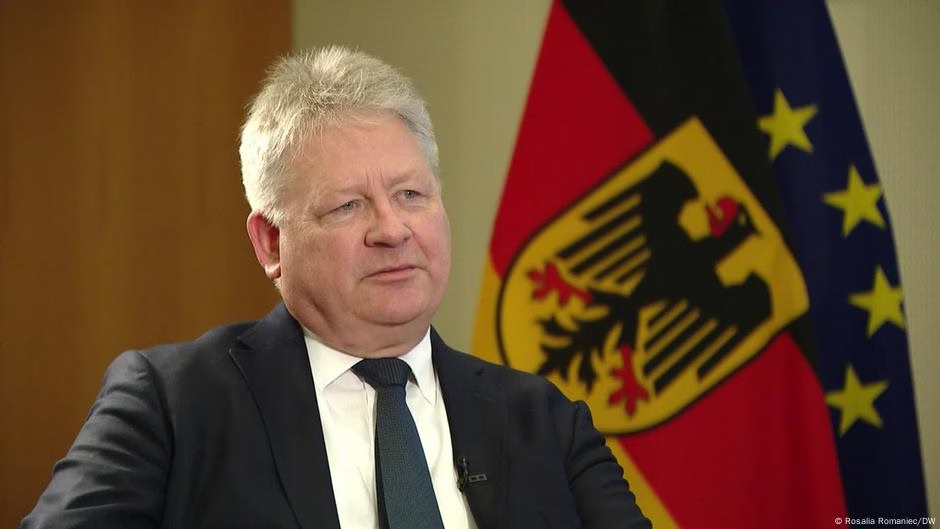Bruno Kahl, in his first public comments since the inauguration of US President Donald Trump, stated that the BND would work with its European counterparts to ensure Ukraine remains informed about threats from Russia “to the greatest extent possible,” and to aid Ukraine in its defense capabilities.
“It is our hope that the Americans will be at our side once again to help protect Ukraine from the east’s aggression,” Kahl said.
Germany’s BND chief on the Russian threat to Europe
Bruno Kahl, reacting to the news that Washington has restricted military intelligence sharing with Ukraine, said that the BND would increase its cooperation with other European intelligence agencies to keep Ukraine informed and help it defend itself.
Kahl warned that a quick end to the conflict, which President Trump seems to be pursuing, would allow Russia to direct its energy toward Europe.
“We have observed hybrid influence operations, including during European elections, up to acts of sabotage that are unprecedented in recent times,” he said.
Referring to his prior warning that Russia may be testing NATO’s collective defense clause, Kahl stated, “We very much hope we won’t face the dilemma of it being tested. But we have to assume that Russia wants to test the unity of the West.”
The impact of Trump’s policies on security
The head of the spy agency stated that the Trump administration’s different approach to conflicts is leading to increased rather than decreased security concerns, especially as Russia intensifies its intelligence activities in Europe and among NATO members.
Kahl dismissed the notion that a more Russia-friendly stance in the White House would lead Germany to stop sharing Russia-related information with the US.
“We all wake up every morning to see what happened overnight, so we are not immune to surprises, even radical ones,” he said, citing long-standing relationships of trust between intelligence officials. “We have an interest in maintaining these working relationships.”
Intelligence sharing is key to countering terrorism
Kahl stressed that intelligence sharing was also important to prevent threats from international terrorism. Kahl’s remarks echoed observations from other experts, who noted that the September 11, 2001, attacks in the US were partly due to a lack of intelligence sharing, both within US agencies and internationally.
“No country can tackle all threats on its own. This is why our counterparts across the Atlantic are very reliant on our information, just as we are on theirs,” he asserted.
The capacity of international terrorism to “export terror to Europe once again through its main players, such as IS and Al Qaeda, has not diminished, but is unfortunately returning,” Kahl said.
He added, “Intelligence sharing is not just critical to open conflicts. Many small, isolated incidents have later shown a more extensive context,” citing the example of the far-right NSU terror cell, which operated in Germany in the early 2000s.
Kahl called on lawmakers to expand the powers of Germany’s intelligence agencies, including allowing them to share certain information with the military, the Bundeswehr.
“You may not believe it, but the legal basis for this is still missing,” he lamented, noting the repeated unsuccessful attempts by former Chancellor Angela Merkel’s government and the current outgoing Chancellor Olaf Scholz to enact legislation in this regard.
Kahl expressed optimism that Friedrich Merz, the likely future Chancellor, who has been particularly tough on Russia, could push the required legislation through parliament.
Edited by: Saim Inayatullah, Rob Turner








